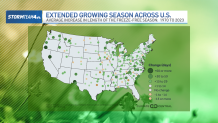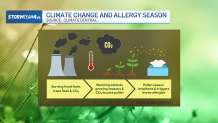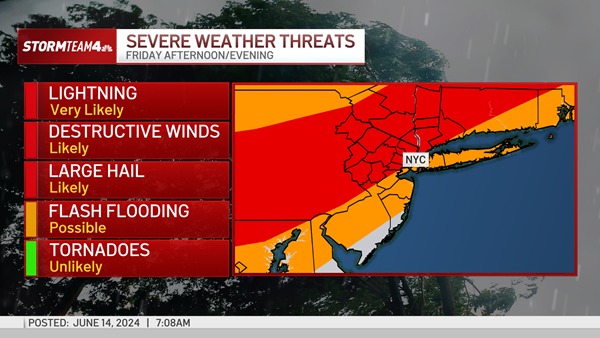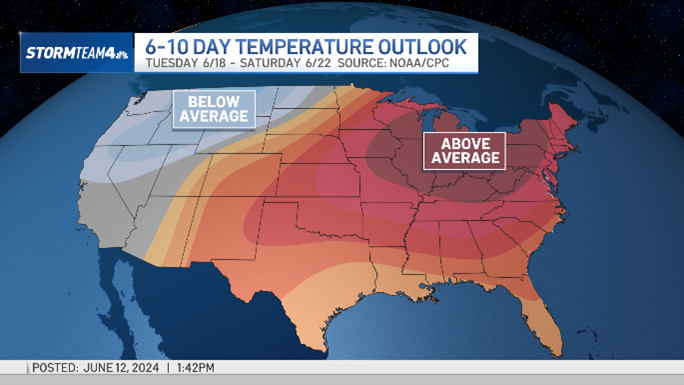If you suffer from allergies and your sniffling, sneezing and itchy eyes seem worse this year than ever, you're probably not imagining things.
Thanks to climate change, our allergy seasons are starting earlier, ending later and overall increasing in severity.
There are a couple of factors that impact this trend. First, temperatures are getting warmer and our growing season is expanding. The growing season is the time between the last spring freeze and the first freeze the following fall. This “freeze-free” period is when plants thrive – and produce pollen.
Based on data collected by Climate Central, in New York City it is averaging 21 days longer now than it was in 1970. Plants are sprouting earlier and producing pollen longer.

All over the country the trend is similar, with the West Coast and eastern third of the country feeling the biggest impact.
Get Tri-state area news and weather forecasts to your inbox. Sign up for NBC New York newsletters.
In Atlanta, Georgia, the growing season is averaging 34 days longer. In Reno, Nevada, it’s a whopping 99 days longer!

The second factor impacting allergy season is the increasing carbon dioxide (CO2) concentration in our atmosphere due to continued burning fossil fuels. CO2 is the greenhouse gas at the heart of global warming, but it’s also plant food.
Plants consume CO2 during photosynthesis, so the more CO2 available the more productive plants are at growing – and producing pollen. In a 2022 article published by the Columbia Climate School, increases in CO2 have resulted in an average 21% increase in above-ground plant growth.

Dr. Guy Robinson, a paleoecology research scholar, has been sampling New York City’s air for pollen for 25 years. One day in early May, he measured some of the highest pollen concentrations seen in the NYC area in a decade: 7,600 per cubic meter, which was found up in the Westchester County town of Armonk.
Weather Stories
Fortunately, tree pollen is beginning to wane and the peak of pollen season is probably behind us. However, grass pollen, ragweed and mold will be plaguing us through the rest of summer and into fall. So, if you suffer from allergies make sure you’re well-stocked with your antihistamine of choice.
And if you're looking for some pollen-related nightmare fuel, just remember this video of a tree from New Jersey from a few years back that would make any allergy sufferer shudder:



